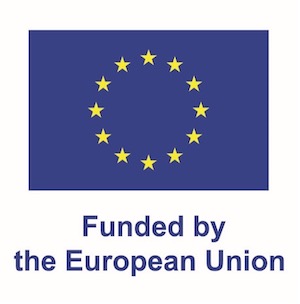Looking for?
REBECCA
REBECCA Project (1/4/2021 -31/3/2025) (REsearch on BrEast Cancer induced chronic conditions supported by Causal Analysis of multi-source data/REBECCA) is an EU-funded project that taps into the potential of Real-World Data (RWD) for supporting clinical research on Complex Chronic Conditions (CCC) as a complement to Randomized Controlled Trials (RCT). REBECCA moves beyond the analysis of Electronic Health Records (EHR), by combining it with detailed monitoring data from multiple wearables, online behaviour and registry data to monitor patients’ functional, emotional and Quality of Life trajectories, with high temporal granularity. By combining retrospective registry and episodic medical data with continuous monitoring streams, REBECCA will obtain deeper insights for enhancing clinical outcomes on chronic complex conditions in the domain of breast cancer post-treatment management.
REBECCA also proposes explainable causal modelling combined with deep learning to account for observed and latent confounders in RWD analysis. The project focuses on the complex array of chronic comorbidities developed during breast cancer recovery, in particular studying the impact of primary and adjuvant cancer treatment on patients’ quality of life and assessing the value of detailed patient monitoring as a means for improved patient care, and will also demonstrate the extensibility of REBECCA to other forms of cancer (such as prostate cancer).
The data used in REBECCA will be deployed within 7 clinical studies in 3 countries (Sweden, Norway and Spain), with over 650 individuals being involved, and will produce new knowledge on clinical management of cancer patients that will shape future guidelines and practices for post-cancer treatments:
- 3 observational studies for comorbidities associated with cancer (Sweden, Norway, Spain)
- 3 interventional studies to examine improvement in quality of life of patients using REBECCA as compared to standard treatment (Sweden, Norway, Spain)
- 1 feasibility study for prostate cancer patients in Norway.
Best practices resulting from the REBECCA studies will be subsequently disseminated to researchers, public health and regulatory bodies throughout Europe to facilitate wider adoption of RWD in clinical research.
In addition, the REBECCA platform, capable of detailed monitoring and privacy-preserving federated cross-country data analysis, will provide an infrastructure for continued progress on use of RWD beyond the end of the project.
Through these activities, REBECCA aims at the mass adoption of RWD for understanding chronic complex conditions and ultimately at establishing RWD as a valuable clinical research and patient management tool. As such REBECCA raises a number of ethical issues and privacy concerns.
Our role
Timelex serves as legal and ethical advisor to the REBECCA consortium, handling all legal and ethical issues related to this project.

Project details
More information about the REBECCA project can be found on the project website: https://rebeccaproject.eu/ and the project page on the CORDIS website: https://cordis.europa.eu/project/id/965231.
Funded by the European Union. This project has received funding from the European Commission’s Horizon 2020 programme under Grant Agreement No. 965231. Views and opinions expressed are however those of the author(s) only and do not necessarily reflect those of the European Union or the European Commission. Neither the European Union nor the granting authority can be held responsible for them.





